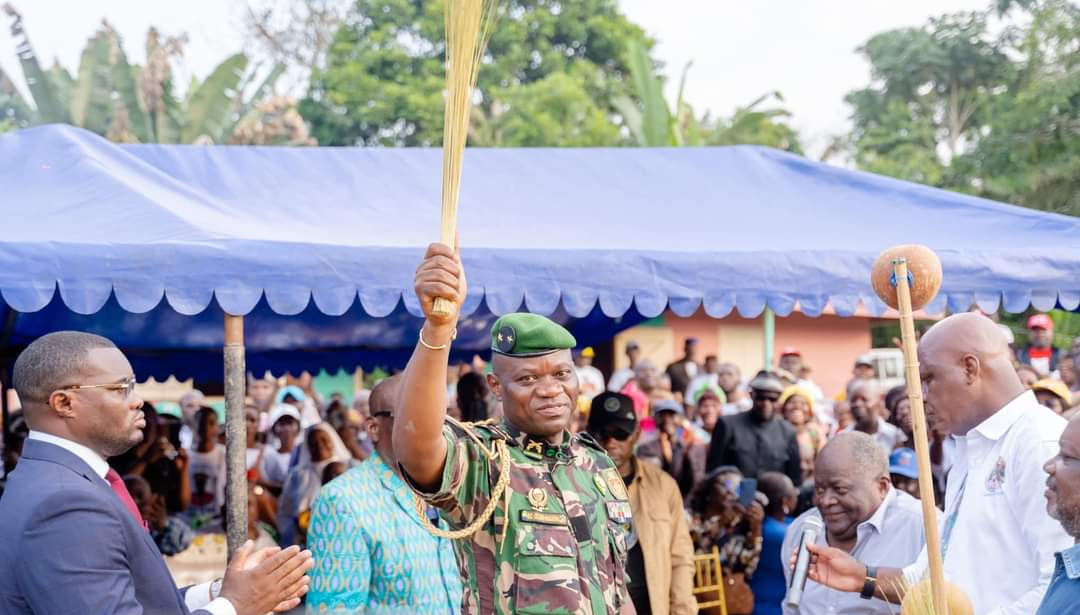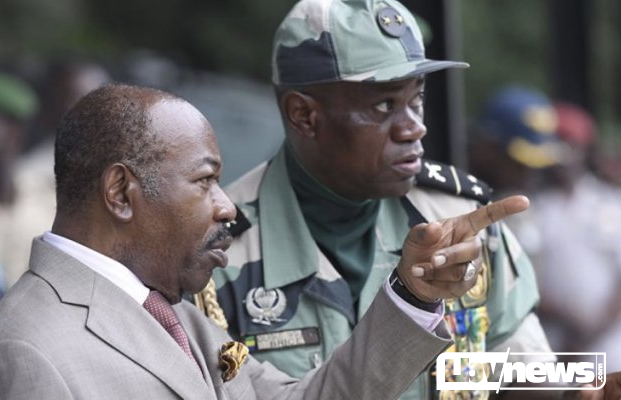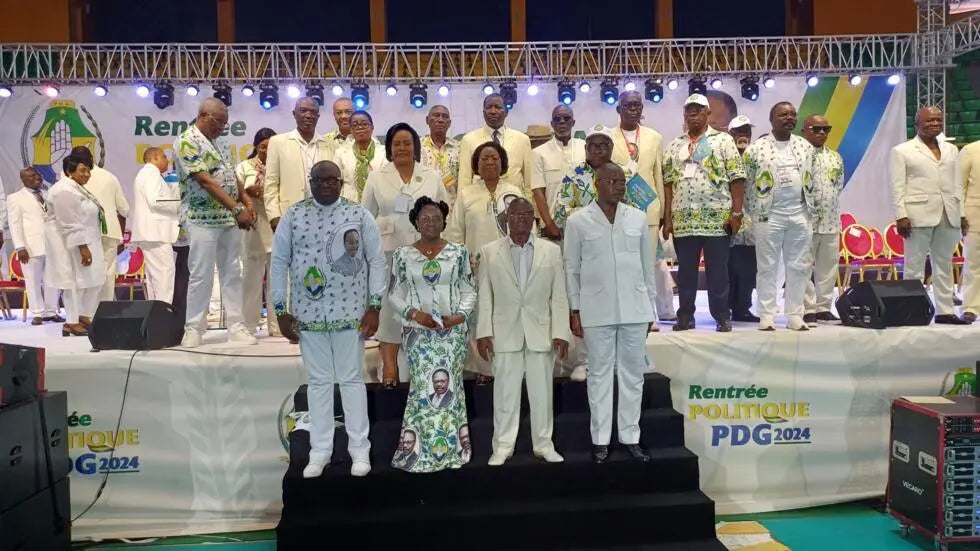
The rise of the Fang under Brice Oligui raises ethnic tensions among the Bilopes
The political climate in Gabon appears increasingly marked by ethnic tensions, exacerbated by recent events involving Marc Ona Essangui, an influential senator and controversial figure on the political scene. During a meeting, Ona spoke in Ntoumou without translation , a gesture approved by the transitional president, Brice Oligui Nguema, also Fang. This situation, seen as a symbol of the growing dominance of the Fang within Gabonese institutions, has stoked resentment among the country's other ethnic groups, particularly those known as the Bilopes, in other words, the non-Fang, who represent 70% of the population.
#Marc_ona_essangui !
— Jeff Blampain 🇬🇦 (@BlampainJeff) October 10, 2024
I don't understand Fang, I don't speak it
This message was going to be interpreted into French for the good of all the Gabonese people.
I feel excluded and he asks the transition president to remove you from the senate pic.twitter.com/dvev3P9Arr
Marc Ona: A senator without election, but with great influence
Marc Ona Essangui, an environmentalist fond of TV shows, although never elected, has risen to a position of power as a senator, a rise that has drawn criticism, particularly because of its lack of democratic legitimacy. His growing influence is seen by many as an example of how Fang elites have taken control of Gabon's political scene. This rise to power, without going through elections, is considered an anomaly in a country that claims to operate on democratic bases. For his detractors, it symbolises an appropriation of power by a minority to the detriment of other ethnic groups.A speech tinged with tribalism
Marc Ona's speech, delivered in Ntoumou/Okak , a Fang language, and not translated, reinforced this perception. By addressing his supporters in this language, at a public meeting, he appears to have sought to consolidate his connection with the Fang community.
However, this choice was seen by many non-Fang (Bilopes) as an act of tribalism, fueling divisions between the country's different ethnic groups. The key phrase of his speech, "The power is ours!", is seen as an explicit declaration of ethnic domination, asserting that the Fang, represented by figures such as Ona and Oligui, now consider themselves the masters of the country.
Fang Domination in Public Institutions
Criticism of this domination does not stop at Marc Ona's speech. Many Gabonese have also taken to social media to denounce an overrepresentation of the Fang in several public institutions.
One particularly high-profile example is ASECNA (the agency managing Gabon's airports), where 80% of employees are said to be from the Fang ethnic group. This situation is seen as another indicator of ethnic bias within the administration under Oligui's presidency.
A Fang himself, Oligui is accused of favouring his ethnic group, thus reinforcing a de facto Fang domination in Gabonese institutions. This situation is generating growing frustration among the country's other ethnic groups, grouped under the name Bilopes, who feel increasingly excluded from the spheres of power.Congratulations ✨️✨️✨️ just remind Mr President that Asecna does not belong only to the Fang because 80% of the agents are only fangs. LBV. POG
— Franck Bayouma (@FranckBayo13078) September 28, 2024
A fracture that threatens national unity
Gabon, a country historically marked by relative ethnic stability, is now seeing these tensions resurface. The rise of the Fang, coupled with symbolic gestures such as Marc Ona’s untranslated speech, risks deepening divisions and undermining national cohesion. Some observers fear that if this trend continues, the country
See our article:
Are the Fangs Favored by Article 53? A Mystery That Is Stirring the Networks!
Ivorianness and Gabonism
This case strongly recalls the sad concept of "Ivorianness" that marked Côte d'Ivoire in the early 2000s. Supported by Henrik Konan Bédié and Alassane Ouattara, this concept of Ivorianness aimed to define the Ivorian national identity by emphasizing ethnic "purity" and marginalizing populations perceived as not being "of pure Ivorian origin". This doctrine, adopted for political purposes, exacerbated ethnic tensions in the country, creating a climate of mistrust and divisions that contributed to the civil war. Let us hope that Gabon will be able to protect itself from this kind of thing and learn the lessons of what happened to some other African countries.



Leave A Comment
Rating
0
Name *
Email *
Comment *